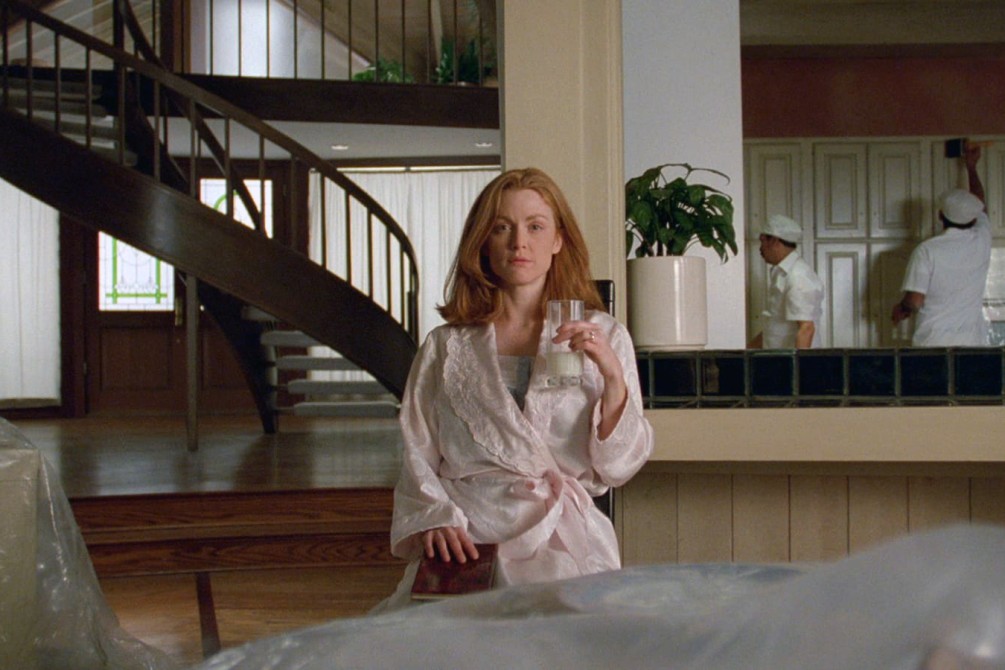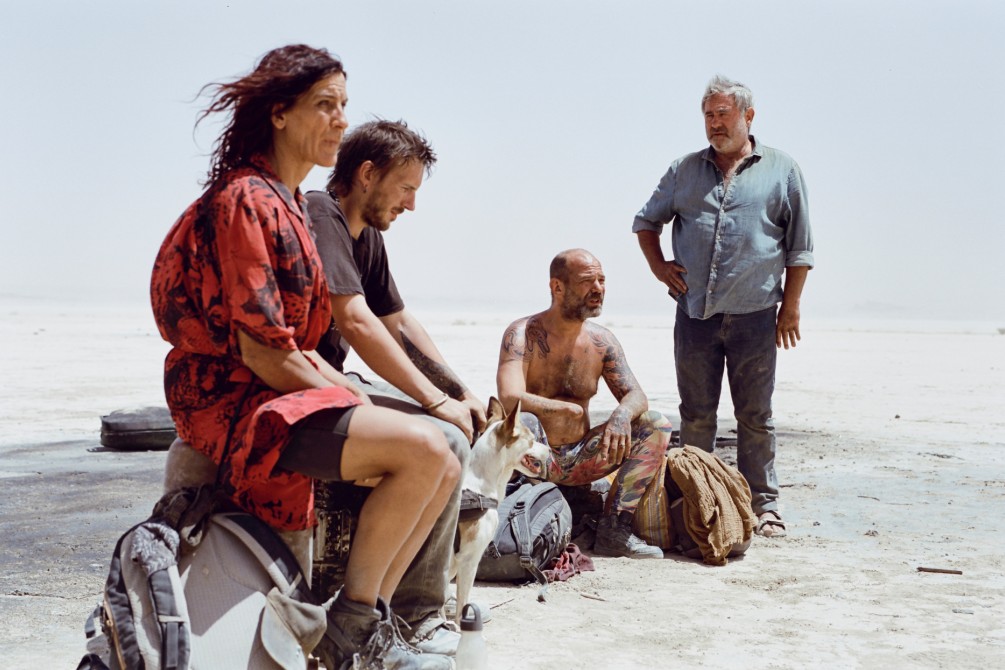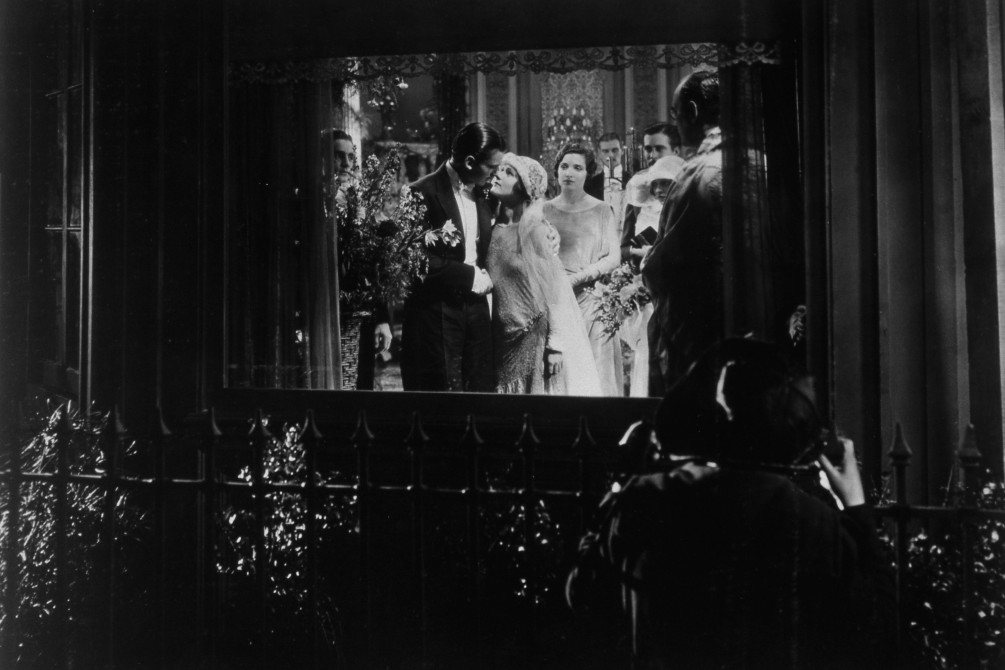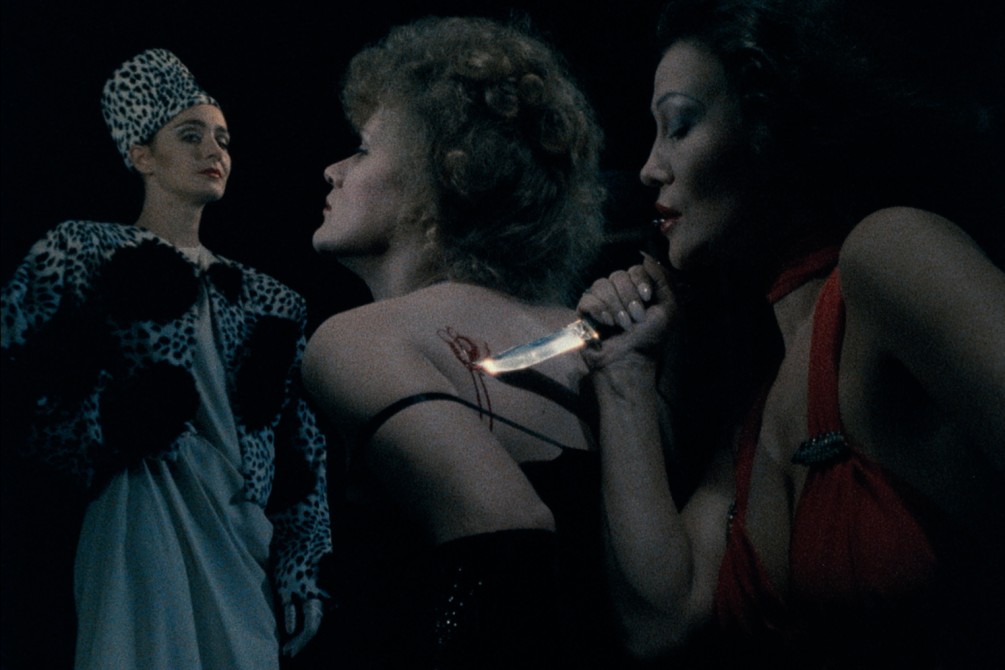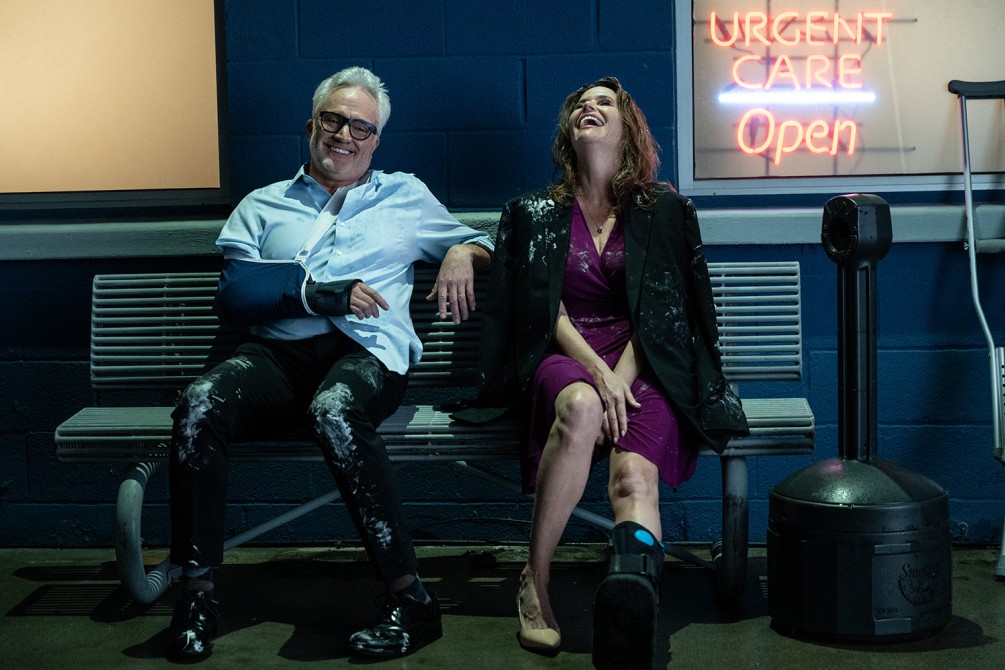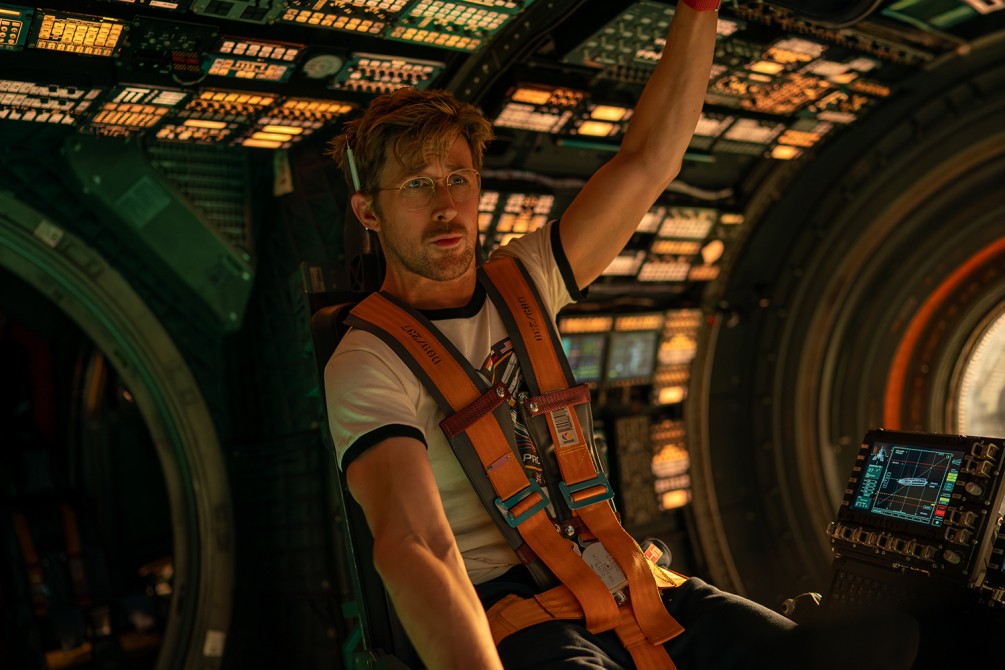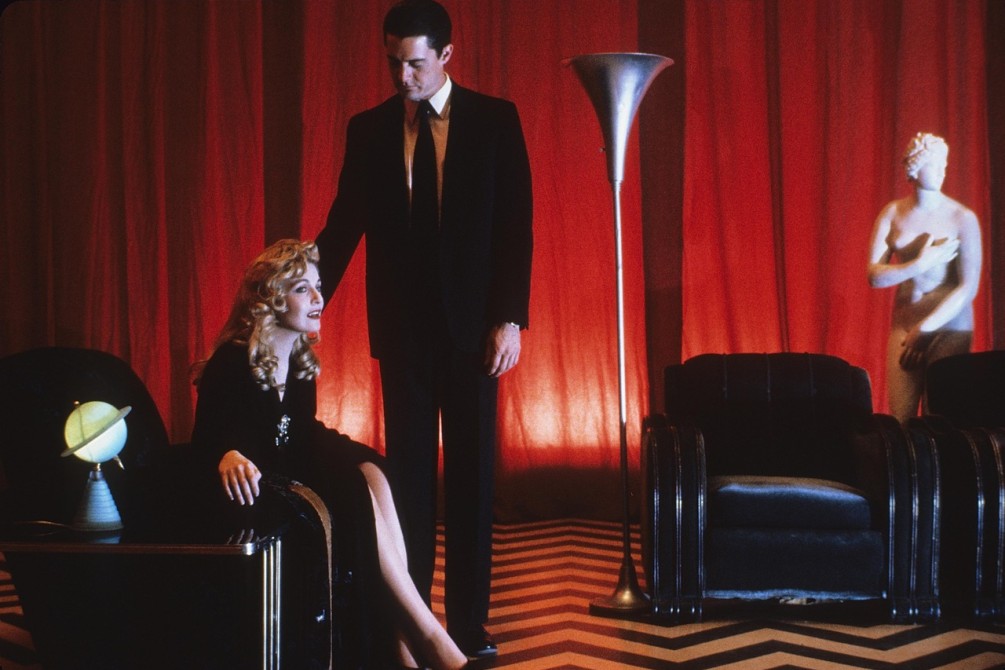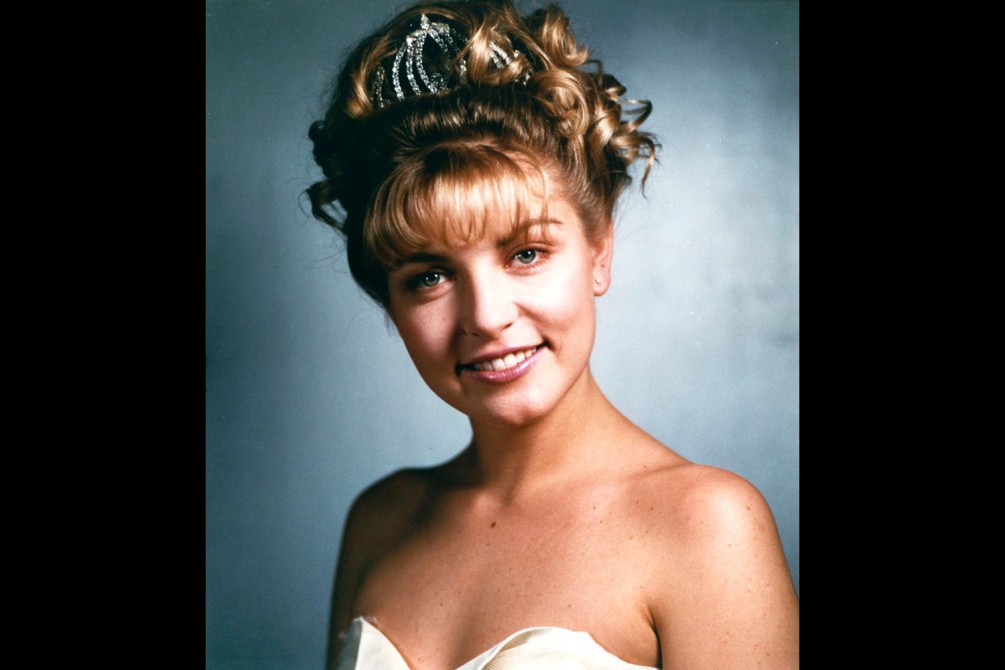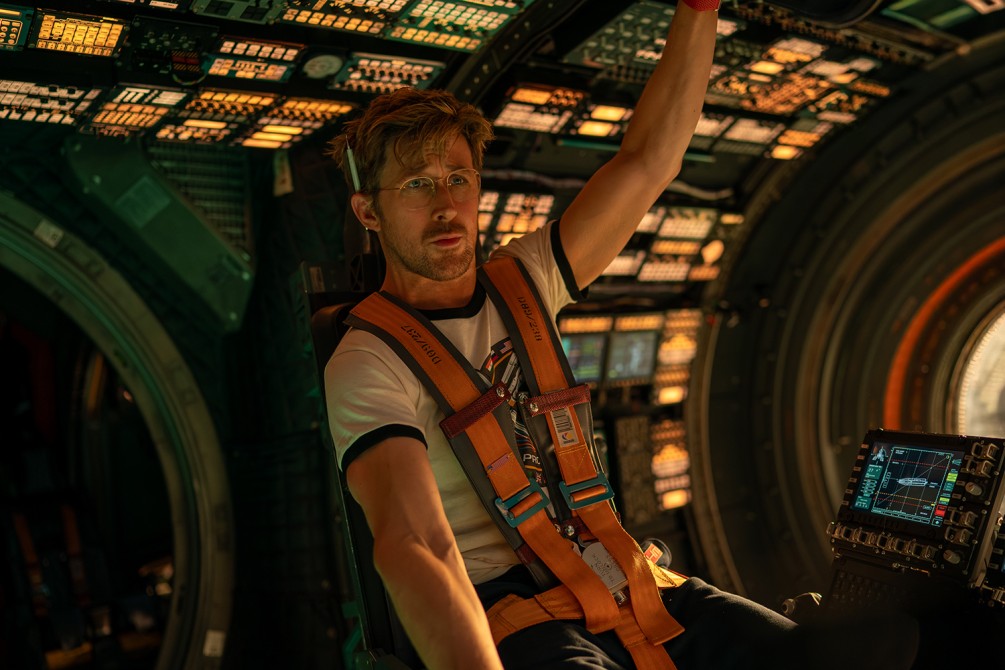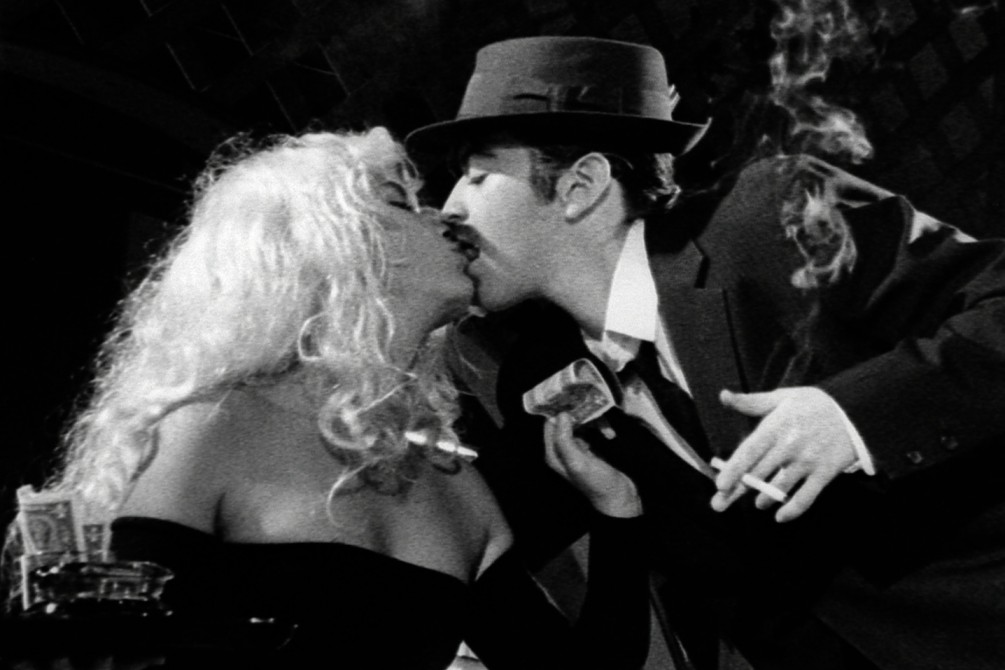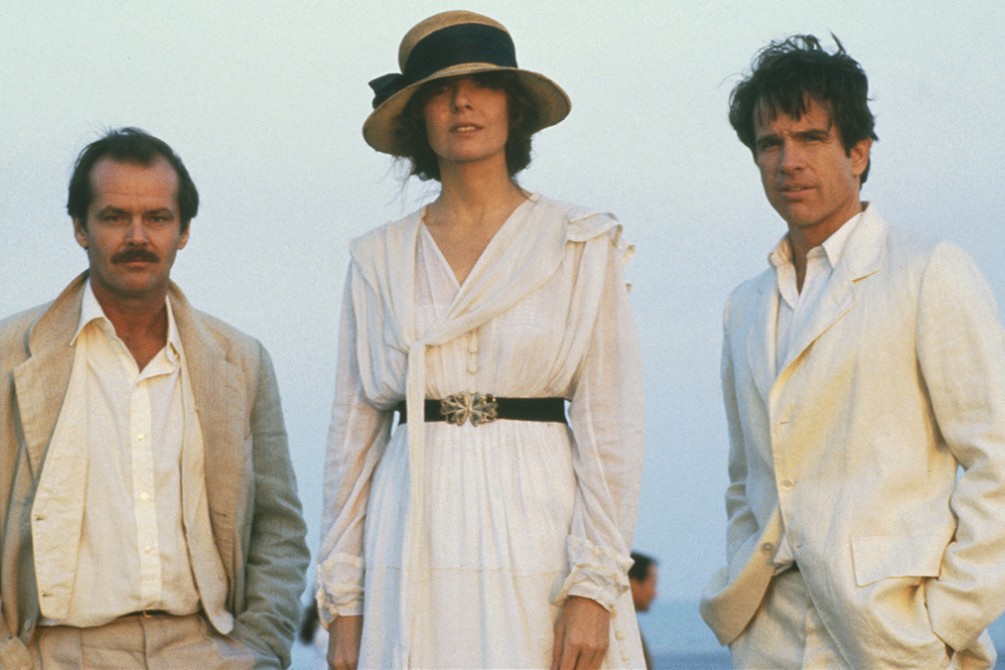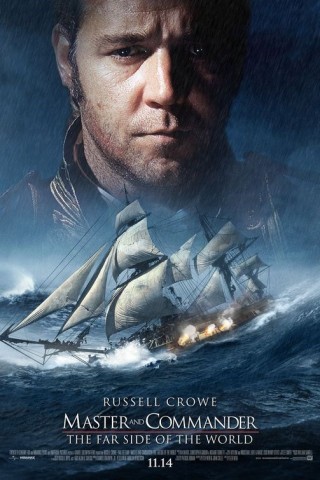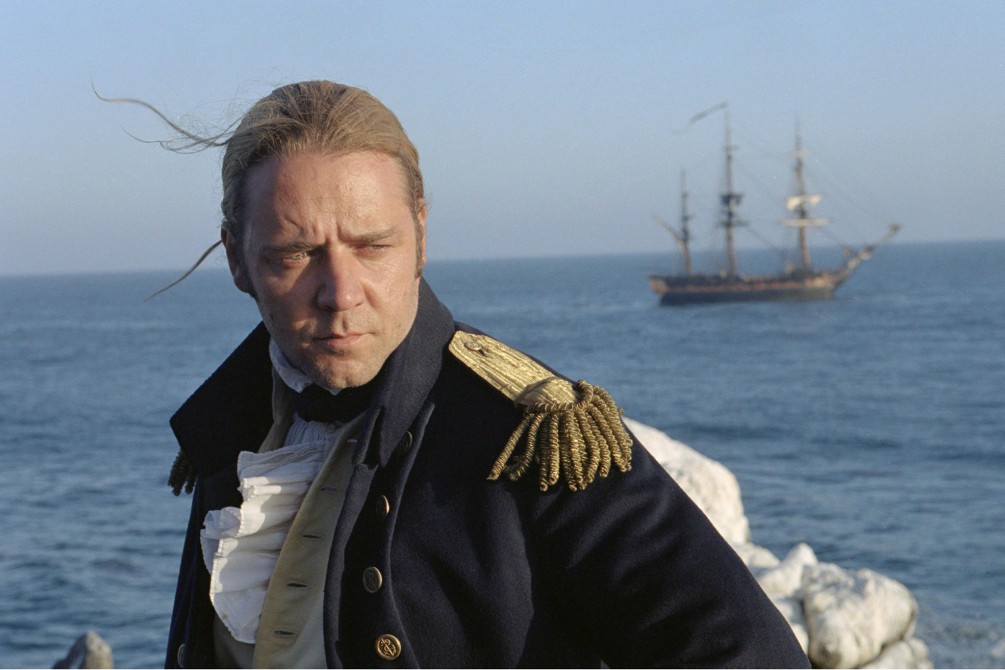
Presented by Chicago Film Society
In the years since its maiden voyage, Peter Weir’s epic seafaring adventure film has made an inexplicable journey: from respected blockbuster that never managed to launch a thousand sequels (or even one) to meme fodder. In 2020, pandemic-related boredom (or maybe just pure love of a solid adventure story?) led to a baffling explosion of internet posts quoting the opening line of the film: “Oceans are now battlefields” — reaching a pinnacle of sorts when a Chicago tattoo shop owner shared a photo of the line freshly inked on an anonymous gentleman's back. Based on Patrick O'Brian's classic series of maritime novels set during the Napoleonic Wars of the early 19th century, the film follows the crew of the HMS Surprise as they battle a larger and better-equipped French vessel in and around Cape Horn. But the heart of the film is on board the ship, in the relationship between best friends and intellectual opposites Captain Aubrey (Russell Crowe) and ship’s doctor Stephen Maturin (Paul Bettany). While this might not seem like back tattoo material to most, there’s much here to be awed by. The film was shot partly on full-scale replicas of ships from the era (both in the open ocean, and in the water-tank built for James Cameron’s Titanic). It’s rich with tremendous scenes of oceanic action, and shows a commitment to practical effects and historical accuracy that was becoming increasingly rare even in 2003. It's light on plot but heavy on hanging out, and there’s a true beauty in the easy camaraderie and Peter Pan-like playfulness of the crew members (some of whom are actual children), not to mention the leisurely philosophical bantering between battle sequences. As Roger Ebert put it, "Like the work of David Lean, it achieves the epic without losing sight of the human, and to see it is to be reminded of the way great action movies can rouse and exhilarate us, can affirm life instead of simply dramatizing its destruction.”
Preceded by: "Voiliers et Coquelicots" ("Sailboats & Poppies") (Rose Lowder, 2001) – 2 min – 16mm from Canyon Cinema
Recommended Films
